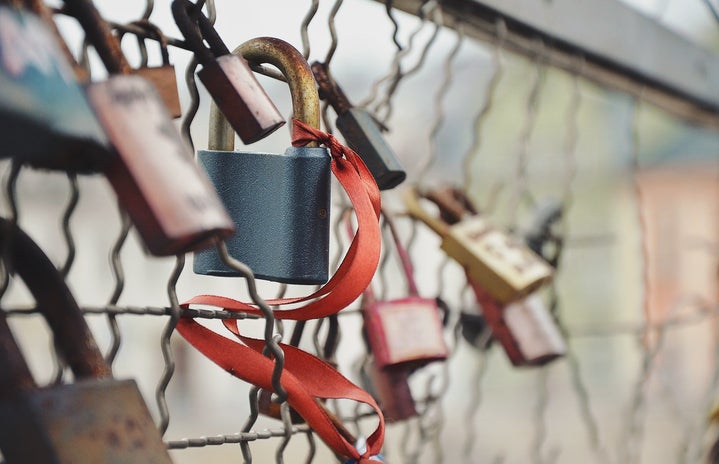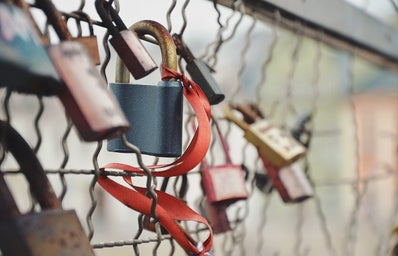Korean dramas (Kdramas) are known for romance. In fact, Kdrama fans are often attracted to them for of this very reason. When I was first introduced to Kdramas in the tenth grade, I simply watched them to be entertained and since I was already familiar with anime, which has similar romantic elements, a lot of the issues with Kdrama relationships went over my head. However, as I grew older, particularly in light of my parents’ impending divorce, I found that I could not comfortably watch certain Kdrama romances. The discomfort I feel towards these said romances have been on my mind lately and so I would like to share with you their problematic aspects.
First, I must begin by explaining what Dramaland is. If you’ve ever heard people talk about “dreamland,” you’ve probably gotten the idea. The term is used in the Kdrama fandom to describe the world that Kdrama characters live in; a world which is quite far from reality most of the times, especially in its representation of Korean life. This is especially true in regards to their representation of relationships. Dramaland misrepresents specifically what relationships in Korea are like, and by large what relationships on a global scale are like as well. I am not speaking of the fact that these relationships tend to have fairytale overtones — anyone can see these relationships are not realistic. However, the disturbing messages I am speaking of go beyond the idealization of Prince Charming and his damsel in distress.
The drama that really brought the issue of relationship representation to light for me within Kdramas was Mischievous Kiss: Love in Tokyo. Note, that this drama is Japanese, but often in the fandom everything is described with the umbrella term “Kdrama,” since the most popularly watched Asian dramas come from South Korea and because the themes are usually the same. For reference, the Korean counterpart is Playful Kiss, and the Taiwanese is It Started With a Kiss. I’ll focus on Mischievous Kiss because it is my favorite version and the only one I have completed. I happened to be rewatching it a few weeks after my parents got a divorce. While I was really sensitive during this period, I was nonetheless freshly reminded of what the glorification of male aggression and manipulation can lead to, since this was a factor of my parents’ relationship. This is but one of the issues with Kdrama relationships. In Mischievous Kiss, the main female lead, Kotoko, has loved the male lead Noaki from the moment she saw him at her high school’s entrance ceremony. She knows nothing about him except that he is smart and rich and she dedicates her whole life to getting him to love her, which is self-destructive in and of itself, but of course, is not portrayed as such in the drama. Kotoko confesses her love to him and he continuously rejects and insults her, until she promises not to like him anymore, at which point he kisses her to taunt her. He does eventually fall for her, but according to him, it is because of her persistence. This goes beyond the stereotypical “boys are mean to the girls they like” love plot; these are serious instances of manipulation and of objectification.
Dramaland never allows any viewer to simply jump to conclusions about a character. This is something I love about Kdramas: they force you to see all the perspectives represented. The plot takes into consideration why Naoki would do what he does. Naoki, having had to be perfect all his life and having people flock to him because of this, is closed off and protects himself by pushing people away. And to be fair, Kotoko isn’t guiltless — she likes him for the same reasons he avoids people. I know this may not warrant enough sympathy for him, but nevertheless, Dramaland intends it to. But I digress. Although Naoki is often annoyed with Kotoko for flocking to him because of how smart he is and the “perfect” persona he puts on, she becomes appealing to him because she is consistent and authentic in her feelings. He realizes this when she loves him despite all the mean things he says and does to her. The reason he begins to like her is not as problematic as the fact that throughout the film he takes advantage of her love. It would be one thing if he was mean to her at first as a means of keeping up a barrier, but even after they confess to each other, he continuously pushes his luck with her love and is continuously insensitive. The relationship is also forced and not able to grow naturally because of familial interference (Naoki’s mother forces Kotoko onto Naoki, following the age old trope of everyone thinking that they know what’s best for the main leads but themselves) and Naoki isn’t the most supportive, perceptive, or caring person ever.
The other issue with Kdrama relationships is the propensity for the female lead to not do anything for herself. By for herself I mean doing things because she knows it’s for her benefit. The line between using someone as inspiration and doing something solely because and for someone is skewed. In Kotoko’s case, it would be one thing if Naoki’s dedication to studying prodded her to realize that those studying habits are beneficial to her, causing her to adapt those same habits. However, she only studies to impress Noaki, and when he isn’t there to impress, she completely slacks off, because she does it not for herself but for a guy. The other issue I have is that female leads tend to friendzone a much better guy. I’m actually with them on this because if you don’t like a guy, you don’t like him, no matter how sweet he is. However, it just seems odd that Kotoko pines after Naoki when he treats her poorly.
In my opinion, one of the greatest examples of female leads overlooking a guy’s character is in She Was Pretty, one of my favorite dramas of all times. This drama is about childhood romance.The female lead, Hye-jin, used to be a beautiful girl who turned not so pretty as she grew up. Seong-joon was not so handsome as a child, but grew up to be handsome. They loved each other, but their love was uprooted because Seong-joon’s family moved to America. Years later, after Hye-jin’s father’s business failed and as she struggles to get a job (often turned down because of her overzealous personality and looks), she gets an email from Seong-joon, who is returning to South Korea. Before they meet, however, she learns that he grew up to be handsome and becomes self-conscious about her own appearance, thinking Seong-joon will be disappointed to see that she was no longer beautiful. So she asks her best friend, who is beautiful, to pretend to be her and go out with him. As would occur in Dramaland, Hye-jin gets finally gets a job in a top company, only to realize Seong-joon is her boss. He turns out to be a mean person. The plot follows the idea that Seong-joon has grown up having to deal with insecurities about his appearance and now treats others the way he was treated as a child to maintain whatever power he now has. Hye-jin is not “well put together” and, being new to the company, is judged, especially by Seong-joon, who is quite nasty towards her and finds her appearance repulsive.
I find it amusing that when he does find out who she is, all of his negative perceptions of her are forgotten. I wouldn’t want to be with anyone who looks down on others or treats them poorly based on looks. The fact that he changed his attitude towards her upon realizing she was his childhood love is not a plausible excuse for his actions. The way you treat others affects all your relationships, something Dramaland often overlooks. The second male lead, Shin-Hyuk, loves Hye-jin despite her appearances and even though everyone continuously judges her for her appearance, he doesn’t; instead, he gets to know her. In fact, Shin-Hyuk may like everything others hate about her. Towards the end when Hye-jin starts getting more “fashionable”, Shin-Hyuk remarks that he misses her old appearance, but even then, seems to love that side of her as well.
While I love all these dramas and thoroughly enjoy them, I think viewers should consider the harsh realities they brush aside or portray as “cute.” Regardless of the fact that these are fictional television shows and that they’re dramatized, it is still important to consider the often problematic messages that are reinforced to viewers. Applied to real life, the traits discussed here are dangerous, and while at 19 years old I am more aware and discerning, I am worried about the 12 year old watching this who may absorb these harmful messages or stereotypes. On the bright side, Dramaland is improving in their portrayals of relationships. For example, in Chicago Typewriter, author Han Se-Joo, the male lead, is a jerk. However, Jeon Seol, the female lead, does not tolerate this. She sets boundaries and lets him know his behavior is not acceptable instead of sucking up to him and, as a result, he begins to change. While far from perfect, the relationships in newer dramas seem to reject the glorification of male entitlement and encourage young viewers to set boundaries in relationships.
What are your thoughts on Dramaland relationships? Share your opinions with me in the comments section!
If you would like to write for Her Campus Mount Holyoke, or if you have any questions or comments for us, please email mt-holyoke@hercampus.com.


